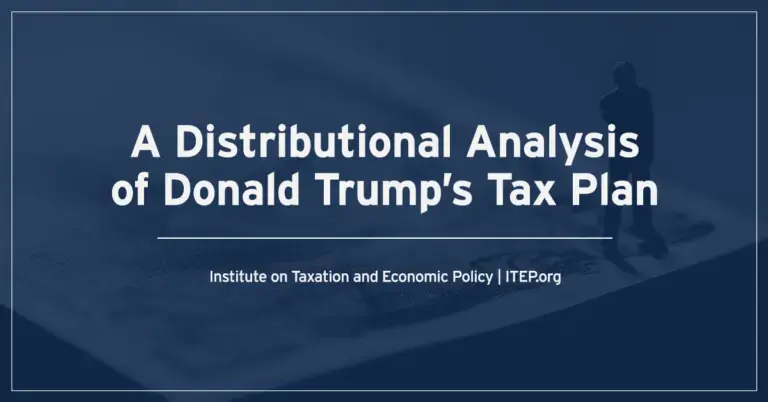Former U.S. President and Republican presidential candidate Donald Trump has proposed a wide variety of tax policy changes. Taken together, these proposals would, on average, lead to a tax cut for the richest 5 percent of Americans and a tax increase for all other income groups, an analysis by the Institute on Taxation and Economic Policy (ITEP) has found.
If these proposals were in effect in 2026, the richest 1 percent would receive an average tax cut of about $36,300 and the next richest 4 percent would receive an average tax cut of about $7,200. All other groups would see a tax increase with the hike on the middle 20 percent at about $1,500 and the increase on the lowest-income 20 percent of Americans at about $800.
[…]
Trump has offered several tax proposals, which are all included in these estimates:
- Extending the temporary provisions in Trump’s 2017 tax law that will otherwise expire at the end of 2025, except for the $10,000 cap on State and Local Tax (SALT) deductions, which Trump says he would not extend
- Exempting certain types of income from taxes (overtime pay, tips, and Social Security benefits)
- Reducing the corporate tax rate from 21 percent to 20 percent and then further reducing it to 15 percent for “companies that make their product in America”
- Repealing tax credits enacted as part of President Biden’s Inflation Reduction Act that provide incentives for the production and use of green energy
- Imposing a new 20 percent tariff on imported goods, with a higher rate of 60 percent for goods from China
[…]
Measured as a share of income, the tax increases faced by most Americans would fall hardest on working-class families. […] The middle 20 percent of Americans would face a tax increase equal to 2.1 percent of their income, while the poorest 20 percent of Americans would face a tax increase equal to 4.8 percent of their income – all while the top 5 percent get a tax cut.


